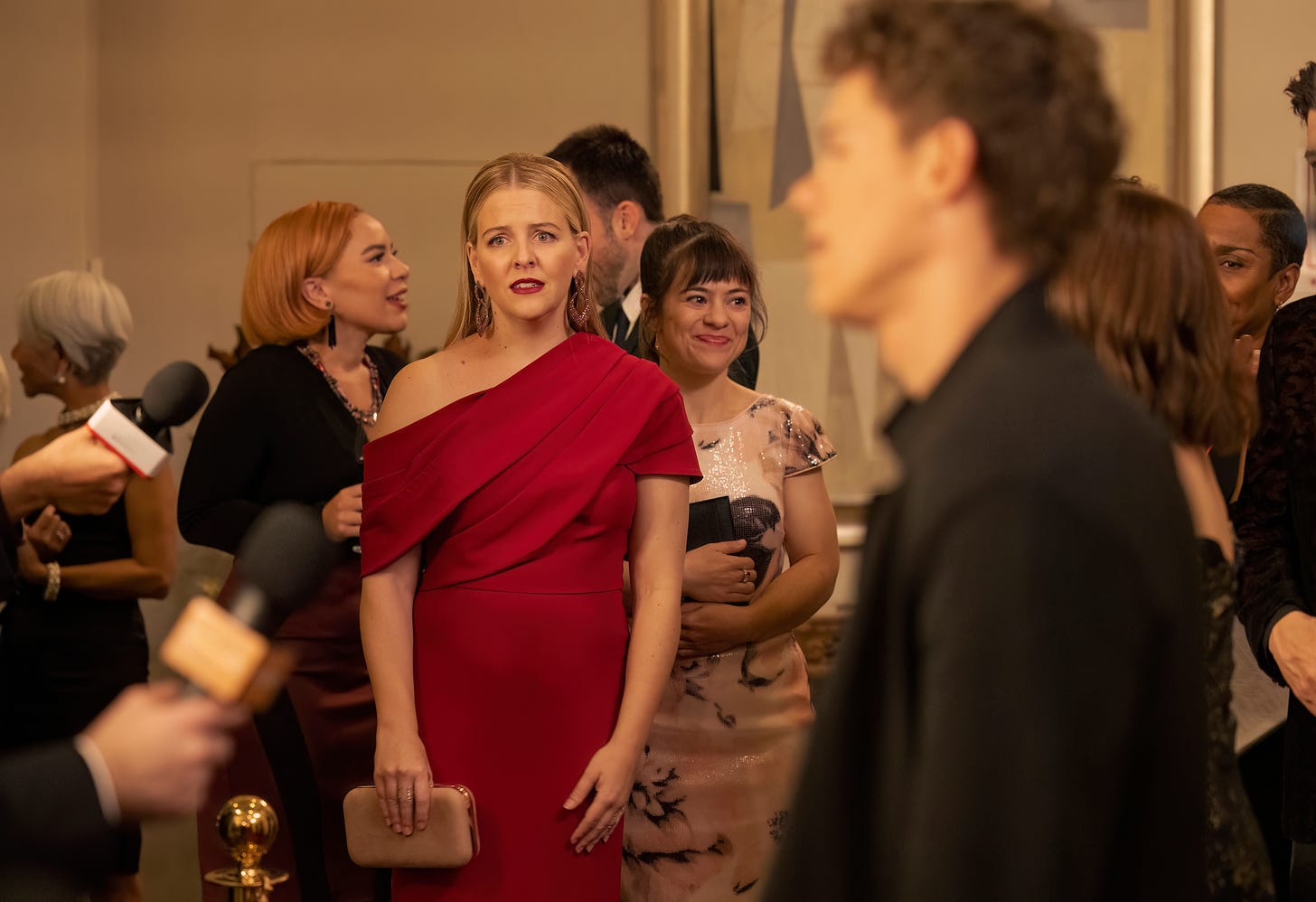Review: The Other Two, "Brooke & Cary & Lance & Curtis" | Season 3, Episode 10
A biting satire goes out on its own terms, although with unexpected (but fitting) baggage behind-the-scenes
From interviews earlier in the season, it was clear—as I reflected in last week’s penultimate review—that yesterday’s announcement that this would be the final season of The Other Two was pretty likely. Presuming we take them at their word, this was a decision made by co-creators Chris Kelly and Sarah Schneider, and reflects their belief that the story of Brooke and Cary Dubek had reached the conclusion they imagined when they set out to make the show.
By making this announcement yesterday, the show’s conclusion becomes a dominant lens through which we view the events of “Brooke & Cary & Lance & Curtis,” and for the most part it tracks. The season was built on the trajectory of both Brooke and Cary self-sabotaging key relationships in order to feed their professional insecurities, and always being one moment away from snapping out of it before their professional lives spun them back in the wrong direction. And this finale breaks those cycles, with both Cary and Brooke finding a better headspace to understand their lives, their goals, and their connection to the people around them. I don’t know if the finale brings things full circle back to where this family unit started, but it leaves them in a place that feels like a meaningful—but still restricted—moment of growth for those involved even if their stories will keep going after.
But this isn’t the only lens that yesterday’s news cycle added to this finale, depending on where you read the news in question. Because while Variety and other sites ran with the press release on its own, The Hollywood Reporter paired it with indepth reporting from multiple sources regarding abuse and overwork perpetrated by Kelly and Schneider. And as the internet reacted to the news, it became clear this was an open secret, with Tina Fey even alluding to it as a punchline while honoring their shared mentor Lorne Michaels back in March. By all accounts, The Other Two was an absolutely terrible place to work, overseen by two people who have internalized a toxic work culture at Saturday Night Live that Mo Ryan so thoroughly detailed in her book Burn It Down. And thus, we now wait to see whether the show’s creators have taken any of their finale’s lessons to heart.
Overall, though, I don’t think the news that a show about the toxicity of the media industries was perpetuating that toxicity undoes the work the series has done in this space. It may seem hypocritical for a show to be skewering the industry while ultimately embodying it, but that’s the very reason why these toxic work environments have perpetuated. People like Kelly and Schneider are fully aware that the industry is broken and fucked up, but they’ve so internalized a certain work environment that they believe it is necessary to create something good, and refuse to see an alternative. The Other Two was incredibly observant of the cultural dynamics of the media industries, but it never proposed an alternative: it presented its satire as an immovable reality, albeit exaggerated for effect. It’s a reminder that the people who create these toxic spaces often see themselves as allies to a broader cultural critique, the contradiction reconcilable in their minds as the cost of doing business.
I realize that some people might not care about the behind-the-scenes dynamics of the show, and I get that, but it’s hard to divorce the two given how much this finale is about reconciling one’s own sense of responsibility and agency within these systems. THR’s reporting gestures to the idea that Kelly and Schneider are using Cary and Brooke as surrogates, and you could read this finale as them working through their own self-destructive tendencies. I’m not sure there’s enough evidence to support such a reading, but there’s no question that the show’s central theme is whether a person can still be a person while participating in these spaces, and one would hope that the show’s conclusion will provide Kelly and Schneider with some space to reflect on the relevancy of this to their own professional conduct.




